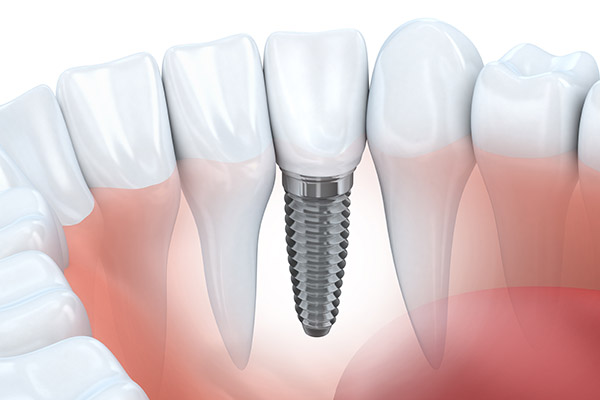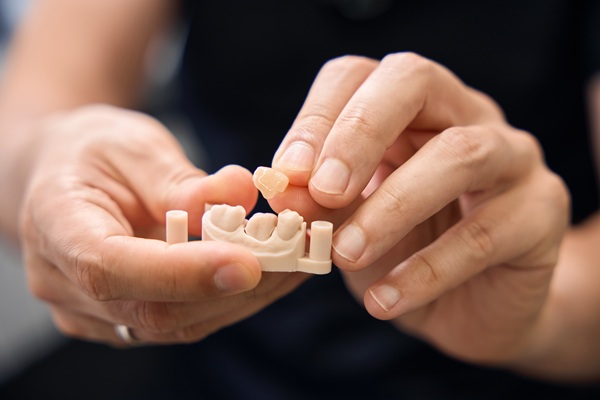How a TMJ Dentist Can Help You

A TMJ dentist is a dentist who is trained in general dentistry but continues their education with a focus on the temporomandibular joint and its disorders. They spend their days treating general dental conditions, however, much of their efforts are spent diagnosing, managing, and treating TMJ disorders.
TMJ dentists are great resources to utilize when suffering from the disorder or related conditions. There are a lot of ways that the condition can be managed and treated in order to reduce, if not eliminate symptoms completely. Continue reading to find out more.
Seeing a TMJ dentist
Below is an overview of how a TMJ dentist can be helpful to those suffering from a temporomandibular joint disorder. This information may be worth reviewing when curious about the role of a TMJ dentist.
The role of a TMJ dentist
A TMJ dentist will be part of the entire process, starting from the diagnosis period, all the way to how the disorder is managed and treated. In some cases, TMJ dentists are able to treat the symptoms so that they are completely eliminated from one's life. In other cases, which is more common, the dentist will come up with a regimented plan that helps manage the disorder, thus reducing symptoms significantly, allowing for a more manageable day-to-day experience.
Depending on the severity of the TMJ disorder, the dentist may or may not be heavily involved. For example, those with severe symptoms may see the dentist on a frequent basis, especially in the beginning as trial and error is done. Trial and error may involve a number of appointments with many different treatments. On the flip side, some individuals may have milder symptoms of TMJ disorder, which may not require seeing the dentist as much. And, in some cases, the first treatment attempted might work out, which means the TMJ dentist will not have to be seen as frequently.
TMJ treatment options
Having an understanding of the different treatments available can be quite helpful as it allows patients to know what to expect. TMJ dentists may recommend any of the following treatments, however, it will depend on a few factors, such as the severity of the condition, how frequent symptoms arise, and one's health history.
Mouthguard or nightguard
Both mouthguards and nightguards can be quite helpful in reducing symptoms that come from TMJ disorder. These oral devices help to reduce the effects of teeth grinding and jaw clenching, both of which typically happen when TMJ disorder is in full effect.
Medications
Some medications can be beneficial when treating TMJ disorder. Muscle relaxers can help to loosen the jaw and temporomandibular joint, thus reducing jaw clicking and locking. Additionally, some TMJ dentists recommend over-the-counter medications to reduce swelling or inflammation that may arise as a result of TMJ disorder symptoms. Of course, over-the-counter medications should only be used for short periods of time and not in excess as there is a potential for long-term damage.
Lifestyle changes
Simple lifestyle changes can be beneficial when treating and managing TMJ disorder. Changing what is consumed on a daily basis can be helpful in relieving jaw and temporomandibular joint dysfunction. Softer foods can be easier on the entire area, as opposed to chewy, tough, or hard items.
Therapies
There are a few different therapeutical options that a TMJ dentist might recommend. Physical therapy is an option to help relax and loosen the jaw and temporomandibular joint. The TMJ dentist may bring on a physical therapist in conjunction with other treatments to help reduce discomfort, tightness, and locking.
Another therapy option is counseling. Some TMJ disorders are related to mental health, such as anxiety or stress, both of which can lead to jaw clenching and teeth grinding. Counseling may help to treat the anxiety or stress, which will ultimately help relieve stress in the temporomandibular joint and jaw.
Talk to a TMJ dentist today
When suffering from TMJ disorder, the best thing to do is consult with a dentist. Individuals can visit their general dentist first and see whether they need to be referred to another specialist. When meeting with a TMJ dentist, unanswered questions or concerns can be properly addressed. Additionally, a thorough evaluation can be done to determine what type of treatment is necessary. There may be some trial and error to figure out what is the most suitable approach for your situation.
To find out more or to get scheduled for an appointment, reach out today.
Request an appointment here: https://atlantapamperedsmiles.com or call Pampered Smiles at (404) 891-9489 for an appointment in our Atlanta office.
Check out what others are saying about our dental services on Yelp: TMJ Dentist in Atlanta, GA.
Recent Posts
Oral surgery is a branch of dental care that offers a wide range of procedures designed to address conditions and issues affecting the mouth, teeth, and jaw. These procedures can help maintain oral health and address complex dental problems. Understanding the different approaches to oral surgery can help patients make informed decisions about their treatment…
Oral surgery is often necessary to remove impacted teeth. A tooth is said to be impacted if it fails to emerge fully through the gum tissues because something inhibited its eruption, such as bone, malocclusion, cysts, dense soft tissue or other teeth. This problem is common with wisdom teeth, usually because there is no longer…
If you have just undergone oral surgery, you likely are relieved and happy to be on the way to better oral health. To avoid post-surgical complications and ensure a quick recovery, it is important to have a general idea of what to expect while recovering from a procedure. As with any surgical procedure, those undergoing oral…
Many circumstances might cause you to look into replacing a missing tooth, regardless of your age. Those who do not take care of their teeth and gums are at particularly high risk for tooth loss, as both gum disease and decay can damage gums, tooth roots, and teeth. Cavities can lead to significant damage, as…


